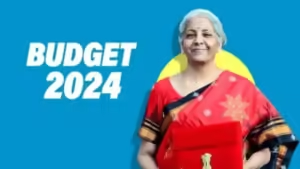GST WEEKLY UPDATE :8/2022-23 (22.05.2022) By CA Vipul Khandhar

-By CA Vipul Khandhar
- CBIC extends Due Date for filing GST PMT-06:
The Central Board of Indirect Taxes and Customs (CBIC) has extended the due date for filing of GST PMT-06 till 27th May 2022.
- CBIC extends Due Date for filing of GSTR-3B:
Due the technical glitches in the Goods and Services Tax Network (GSTN), the Central Board of Indirect Taxes and Customs (CBIC) has extended the due date for filing of GSTR 3B to May 24th, 2022. “A technical glitch has been reported by Infosys in the generation of April 2022 GSTR-2B & auto-population of GSTR-3B on portal. Infosys has been directed by Govt for early resolution. Technical team is working to provide GSTR-2B & correct auto-populated GSTR-3B at the earliest,” the CBIC stated on its official twitter handle today.
- GSTR2B is now available for April 2022.
- It may be noted that, the Input Tax Credit (ITC) gets auto populated in GSTR3B from GSTR2B only if the taxpayer has not saved any data in GSTR3B for that tax period.
- The auto population of ITC in GSTR3B will not happen for those taxpayers who have already saved data in GSTR3B. In such cases, the taxpayer has to input the ITC data in Table 4 of GSTR 3B.
- These taxpayers are advised to view the system generated pdf of GSTR3B where ITC figures would be available in Table-4.
- Advisory on Introduction of New Facility in ICES to Levy and Exempt Education CESS and Higher Education CESS on CVD:
- It is informed that Education and Higher Education cess on CVD was exempted for all goods vide Notification No. 13/2012-Customs & 14/2012 – Customs respectively. Hence no additional field was provided in the BE format to claim exemption from Education and Higher Education cess on CVD.
- In this budget, Notification 18/2014- Customs and 19/2014- Customs were issued withdrawing the exemptions given vide 13/2012-Customs and 14/2012-Customs for certain electronic goods.
- Hence to incorporate such changes, new Column has been introduced in B.E. Format / Assessment to enable importers to claim exemption from this levy based on 13/2012-Customs read with 18/2014 (as amended).
- In the revised procedure, Education & higher Edu. Cess on CVD will be levied on all goods by default. Importers who are eligible may claim exemption in the new column by quoting 013/2012 Sl.No. 1. It is to be noted that by quoting 013/2012 Sl. No. 1 both Education Cess and Higher Education Cess will be exempted. So there is no necessity of claiming 14/2012 for exemption of Higher Education cess separately.
- The calculations may be checked manually and any discrepancies may be informed to this directorate at ices@icegate.gov.inimmediately. Similar to many other notifications, the ICES system has limitations in completely validating the eligibility of this exemption. The Appraising/Out of charge officers must ensure the eligibility of the goods for this exemption before final clearance.
- This change has resulted in modification of BE message format. Updated BE message format is placed at ICEGATE website for information. The importers may need to revise private RES packages being used by them to file Bills of entry remotely. Hence due publicity may be provided to this change.
- GST issues in Corporate Insolvency resolution process (CIRP) IBBI has issued a consultative paper on 13.04.2022 on issues relating to reducing delays in the Corporate Insolvency Resolution Process (CIRP).
IBBI has proposed that operational creditor shall furnish copies of GSTR-1 & GSTR-3B along with copy of e-way bill which will lead to the easier verification of claims, information available with the corporate debtor, promoters, employees etc shall be made available to the IRP/RP which will help in timely preparation of information.
It covers:
i) Substantiating default in admitting applications by Operational Creditors (OCs)
ii) Facilitating information availability for preparation of information memorandum and preparation of avoidance applications
iii) Dealing with avoidance applications after closure of a CIRP
iv) Significant difference in valuation during a CIRP and appointment of a third valuer. Once finalized and regulations amended, this may help in reducing the CIRP period and facilitate smooth resolution.
- AAR & Judicial Decisions:
(i) Decision of Hon’ble Supreme Court Regarding No IGST on Ocean Freight under RCM for CIF Import:
(Applicant – Mohit Mineral)
- The Hon’ble Supreme Court in Union of India & Anr. v. M/s Mohit Minerals Pvt. Ltd. [Civil Appeal No. 1390 of 2022 dated May 19, 2022] upheld the judgement given by the Hon’ble Gujarat High Court to hold that no IGST is payable on ocean freight under Reverse Charge Mechanism (“RCM”) for Cost, insurance, and freight (“CIF”) imports as Indian importer is liable to pay IGST on the ‘composite supply’, comprising of supply of goods and supply of services of transportation, insurance, etc. in a CIF contract; a separate levy on the Indian importer for the ‘supply of services’ by the shipping line would be in violation of Section 8 of the Central Goods and Services Tax Act, 2017 (“the CGST Act”).
- The Impugned Notification, besides specifying the criteria, has also mentioned the corresponding recipient in those categories: The IGST Act and the CGST Act define reverse charge and prescribe the entity that is to be taxed for these purposes. Therefore, the stipulation of the recipient in each of the categories is only clarificatory as the Impugned notification does not specify a taxable entity different from that which is prescribed in Section 5(3) of the IGST Act.
- Valuation: Sections 15(4) and (5) provide for the value of the supply of goods or services if it cannot be determined under sub-section (1) of Section 15 of the CGST Act whereby Rule 27 to 31 of the CGST Rules have been prescribed thus, valuation can be prescribed via notifications under residual power- Rule 31 ibid.
- Import of services: An Indian importer i.e., the Respondent could also be considered as an importer of the service of shipping which is liable to IGST on inter-state supply, if the activity falls within the definition of ‘import of service’ for the IGST Act and CGST Act:
- the supplier of service is located outside India– Fulfilled
- the recipient of service is located in India– Section 13(9) of the IGST Act read with Section 2(93)(c) of the CGST Act inherently create a deeming fiction of the importer of goods to be the recipient of shipping service. Further, Section 5(4) of the IGST Act enables the Central Government to specify a class of registered persons as the recipients, thereby conferring the power of creating a deeming fiction on the delegated legislation.
- the place of supply of service is in India– Section 13(9) of the IGST Act appears to create a deeming fiction, where in case of supply of services of transportation of goods by a supplier located outside India, the place of supply would be the place of destination of such goods. The supplier, the foreign shipping line, in this case would be a non-taxable person. However, its services in a CIF contract for transport of goods would enter Indian taxable territory as the destination of such goods. The place of supply of shipping service by a foreign shipping line, would thus be India.
- Inter-state supply: On a conjoint reading of Sections 2(11) and 13(9) of the IGST Act, read with Section 2(93) of the CGST Act, the import of goods by a CIF contract constitutes an ‘inter-state supply’ which can be subject to IGST where the importer of such goods i.e., the Respondent would be the recipient of shipping service.
- Consideration- Supply: Section 2(31) of the CGST Act defines ‘consideration’ to include payment made or to be made by the recipient or by any other person. Thus, in the case of goods imported on a CIF basis, the fact that consideration is paid by the foreign exporter to the foreign shipping line would not stand in the way of it being considered as a ‘supply of service’ under Section 7(4) of the IGST Act which is made for a consideration, thereby constituting ‘supply of service’ in the course of inter-state trade or commerce that can be subject to IGST under Section 5(1) of the IGST Act.
- Territorial nexus: The impugned levy on the supply of transportation service by the shipping line to the foreign exporter to import goods into India has a two-fold connection:
- the destination of the goods is India and thus, a clear territorial nexus is established with the event occurring outside the territory; and
- the services are rendered for the benefit of the Indian importer i.e., the Respondent.
Thus, the transaction does have a nexus with the territory of India.
- Objective- level playing field for Indian shipping lines: Stated that the Court is not in a position to adjudicate the desirability of a taxation scheme, as long as it is legally issued. Commenting on the efficacy of the tax intervention with the desired goals would be delving into the arena of policy.
- Composite supply and double taxation:
- The illustration to Section 2(30) of the CGST Act clarifies that a transaction such as the CIF contract for supply of goods reflects a composite supply under the CGST Act, where the principal supply is the supply of goods. Thus, the tax would be levied as if the transaction was one of supply of goods as per Section 8 of the CGST Act.
- The impugned levy imposed on the ‘service’ aspect of the transaction is in violation of the principle of ‘composite supply’ enshrined under Section 2(30) read with Section 8 of the CGST Act. Since the Respondent is liable to pay IGST on the ‘composite supply’, comprising of supply of goods and supply of services of transportation, insurance, etc. in a CIF contract, a separate levy on the Respondent for the ‘supply of services’ by the shipping line would be in violation of Section 8 of the CGST Act.
(ii) Decision Of Madras High Court On GST refund cannot be denied merely for Mistake in Filing GSTR-3B:
(Applicant – Abi Technologies)
The procedures under Rule 96 of CGST Rules, 2017 cannot be applied strictly to deny legitimate export incentives that are available to an exporters. In this connection, a reference was made to the decision of the Hon’ble Supreme Court in the case of Commissioner of Sales Tax, U.P. Vs. Auriya Chamber of Commerce, Allahabad reported in 1986(25) E.L.T.867 (S.C), wherein the Hon’ble Supreme Court held that procedures are nothing but handmaids of justice and not mistress of law. In my view, the procedures prescribed under the aforesaid Rules should not be applied strictly so as to defeat the legitimate export incentives, which an exporter otherwise would have been entitled to but for the technicality involved in the system. It is made clear that procedural infraction shall not come in the legitimate way of grant of refund under the IGST Act, 2017 r/w CGST Act, 2017 and the Rules made thereunder.
Disclaimer:
This publication contains information for general guidance only. It is not intended to address the circumstances of any particular individual or entity. Although the best of endeavour has been made to provide the provisions in a simpler and accurate form, there is no substitute to detailed research with regard to the specific situation of a particular individual or entity. We do not accept any responsibility for loss incurred by any person for acting or refraining to act as a result of any matter in this publication.
(Author is a well known Chartered Accountant practicing in direct and indirect taxes at Ahmedabad)





